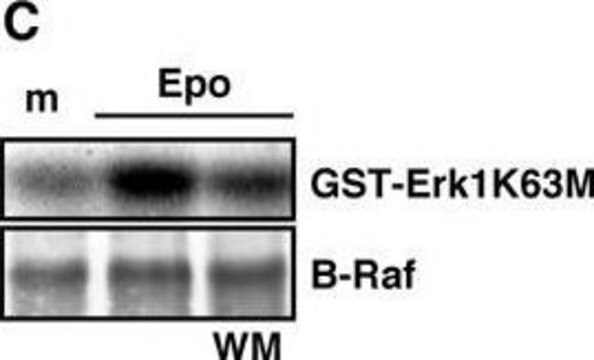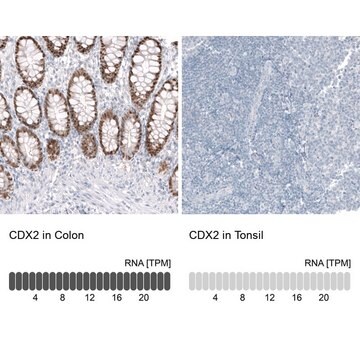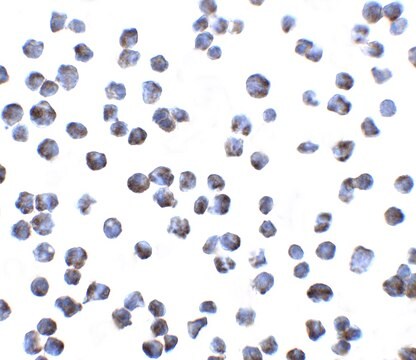144M-9
CD44 (MRQ-13) Mouse Monoclonal Antibody
About This Item
Productos recomendados
origen biológico
mouse
Nivel de calidad
100
500
conjugado
unconjugated
forma del anticuerpo
culture supernatant
tipo de anticuerpo
primary antibodies
clon
MRQ-13, monoclonal
descripción
For In Vitro Diagnostic Use in Select Regions (See Chart)
formulario
buffered aqueous solution
reactividad de especies
human
envase
vial of 0.1 mL concentrate (144M-94)
vial of 0.5 mL concentrate (144M-95)
bottle of 1.0 mL predilute (144M-97)
vial of 1.0 mL concentrate (144M-96)
bottle of 7.0 mL predilute (144M-98)
fabricante / nombre comercial
Cell Marque™
técnicas
immunohistochemistry (formalin-fixed, paraffin-embedded sections): 1:100-1:500
isotipo
IgG2a
control
benign urothelium
Condiciones de envío
wet ice
temp. de almacenamiento
2-8°C
visualización
membranous
Información sobre el gen
human ... CD44(960)
Categorías relacionadas
Descripción general
Calidad
 IVD |  IVD |  IVD |  RUO |
Ligadura / enlace
Forma física
Nota de preparación
Otras notas
Información legal
Not finding the right product?
Try our Herramienta de selección de productos.
Certificados de análisis (COA)
Busque Certificados de análisis (COA) introduciendo el número de lote del producto. Los números de lote se encuentran en la etiqueta del producto después de las palabras «Lot» o «Batch»
¿Ya tiene este producto?
Encuentre la documentación para los productos que ha comprado recientemente en la Biblioteca de documentos.
Nuestro equipo de científicos tiene experiencia en todas las áreas de investigación: Ciencias de la vida, Ciencia de los materiales, Síntesis química, Cromatografía, Analítica y muchas otras.
Póngase en contacto con el Servicio técnico








